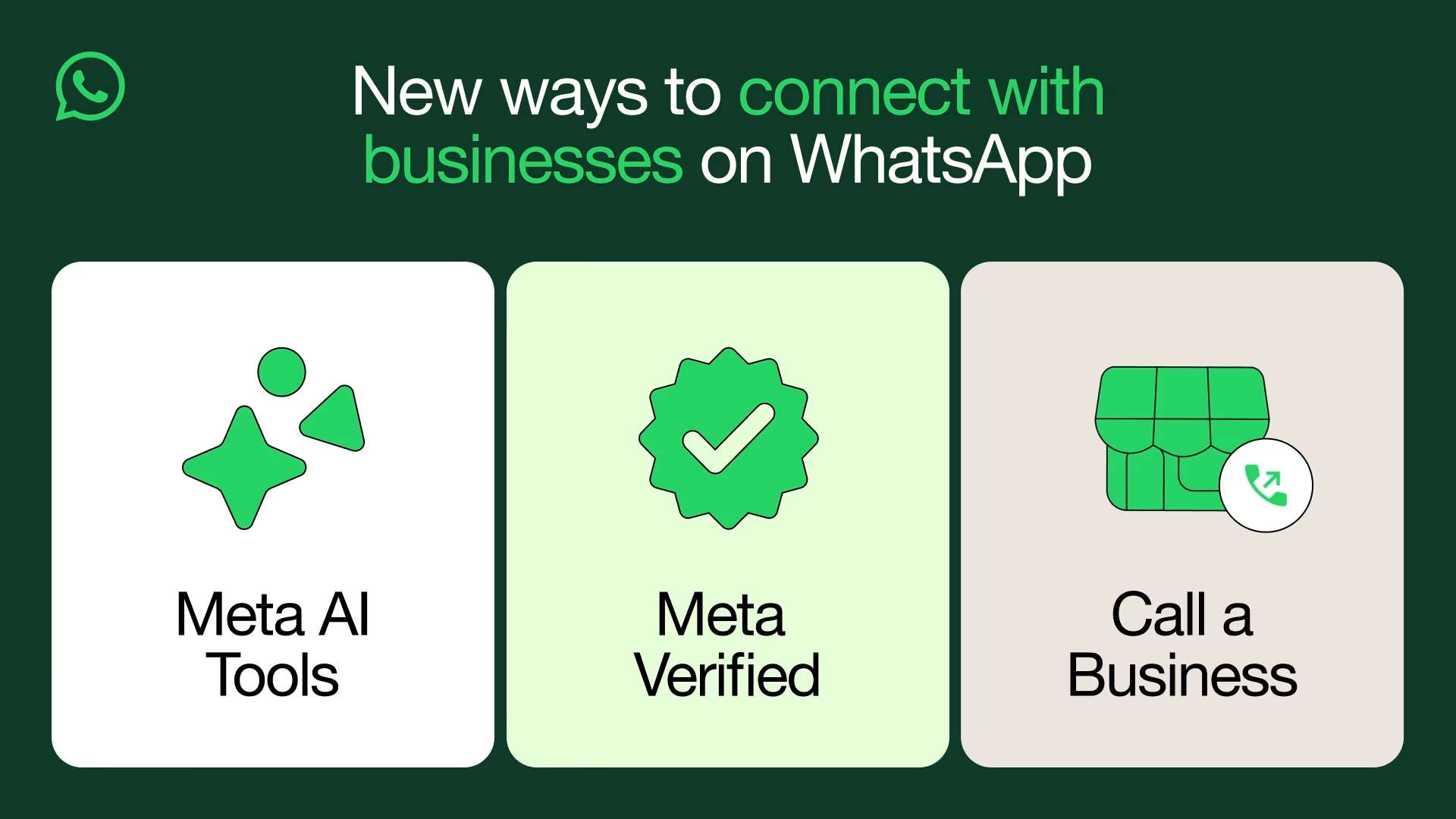WhatsApp Business Evolves: A Deep Dive into Meta's Latest Enhancements
It’s no secret that WhatsApp has become an indispensable tool for personal communication across the globe. But for businesses? Well, that's where things have been steadily, and now quite dramatically, evolving. Meta's recent announcements, particularly those highlighted at their Conversations event, signal a significant pivot, transforming WhatsApp Business from a simple messaging app for companies into a robust, multi-faceted platform. And honestly, it's about time.
For years, businesses have grappled with the challenge of engaging customers where they already are. WhatsApp, with its colossal user base, was always the obvious answer. But the tools available often felt… limited. Now, with the introduction of AI assistants, voice calling, unified campaign management, and enhanced ad formats, we’re seeing a real game-changer. Let's unpack what this all means for you and your business.
The AI Revolution: Smarter Conversations, Better Engagement
The headline act, without a doubt, is the integration of AI-powered tools directly into WhatsApp Business. Think about that for a second. We're not just talking about basic chatbots anymore; this is about intelligent assistants designed to handle customer queries, provide product suggestions, and even guide users through purchases.
AI Assistant: Your New Digital Employee
Imagine your customer service team, but supercharged. That’s essentially what the new AI assistant promises. It's designed to take the load off human agents by handling routine questions, freeing up your team to focus on more complex issues. For a small business, this is huge. It means 24/7 support without the overhead. For larger enterprises, it means scaling customer service efficiently during peak times.
I've always believed that AI in customer service isn't about replacing humans, but augmenting them. This WhatsApp integration seems to lean into that philosophy. It's about providing instant, accurate responses, improving the customer experience, and ultimately, driving sales through smart, AI-driven product recommendations. It's like having a really good, tireless sales associate always on standby.
Beyond Text: The Power of Voice Calling for Businesses
This one might seem simple, but it's profoundly impactful. Businesses can now initiate voice calls with customers directly through WhatsApp. Why is this a big deal? Because sometimes, text just doesn't cut it.
Streamlining Your Marketing Efforts: Unified Campaigns and New Ad Formats
Managing advertising across different platforms can be a nightmare. Facebook, Instagram, WhatsApp – each with its own interface, its own metrics. Meta's new unified campaign management dashboard aims to solve this headache.
One Dashboard to Rule Them All
This new dashboard allows businesses to run ads across Instagram, Facebook, and WhatsApp from a single interface. Simplicity. Efficiency. That’s the name of the game here. It means less time spent juggling different tools and more time focused on strategy and results. For marketers, this is a breath of fresh air. It also enables a more holistic view of your campaigns, allowing for better optimization and a more consistent brand message across Meta's ecosystem.
And it’s not just about management; new Status Ad formats are also coming into play. Status updates on WhatsApp are incredibly popular, and now businesses can leverage this highly engaged audience with enhanced ad formats. This opens up new avenues for reach and engagement, especially in markets where WhatsApp Status is a primary content consumption channel. It's a smart move, tapping into existing user habits.
The Broader Impact: What These Changes Mean for Businesses
These updates aren't just incremental improvements; they represent a strategic shift for Meta and a significant opportunity for businesses of all sizes.
Empowering SMEs and Global Reach
Consider the impact on small and medium-sized enterprises (SMEs), particularly in regions like India where WhatsApp is practically the internet for many. The AI tools can democratize access to advanced customer service capabilities, leveling the playing field against larger competitors. Voice calling can bridge communication gaps, especially in areas with limited internet access or for customers who prefer verbal communication.
The unified campaign management tool, meanwhile, simplifies global advertising. Businesses operating in multiple markets can now streamline their ad strategies, ensuring consistency and efficiency. It’s about making it easier for businesses to connect with customers, no matter where they are or how they prefer to communicate.
Looking Ahead: Challenges and Opportunities
While the potential is immense, it's important to approach these changes with a nuanced perspective. Integrating AI effectively requires careful planning and training. Businesses will need to ensure their AI assistants are well-versed in their products and services to avoid frustrating customer experiences. And while voice calls are great, they also require businesses to have the capacity to handle them.
But the opportunities far outweigh the challenges. Enhanced customer experience, increased operational efficiency, and more effective marketing campaigns are all within reach. These updates position WhatsApp Business not just as a communication channel, but as a comprehensive platform for commerce and customer relationship management. It’s an exciting time to be a business on WhatsApp, isn't it? The future of customer engagement is certainly looking more conversational, and more intelligent.
